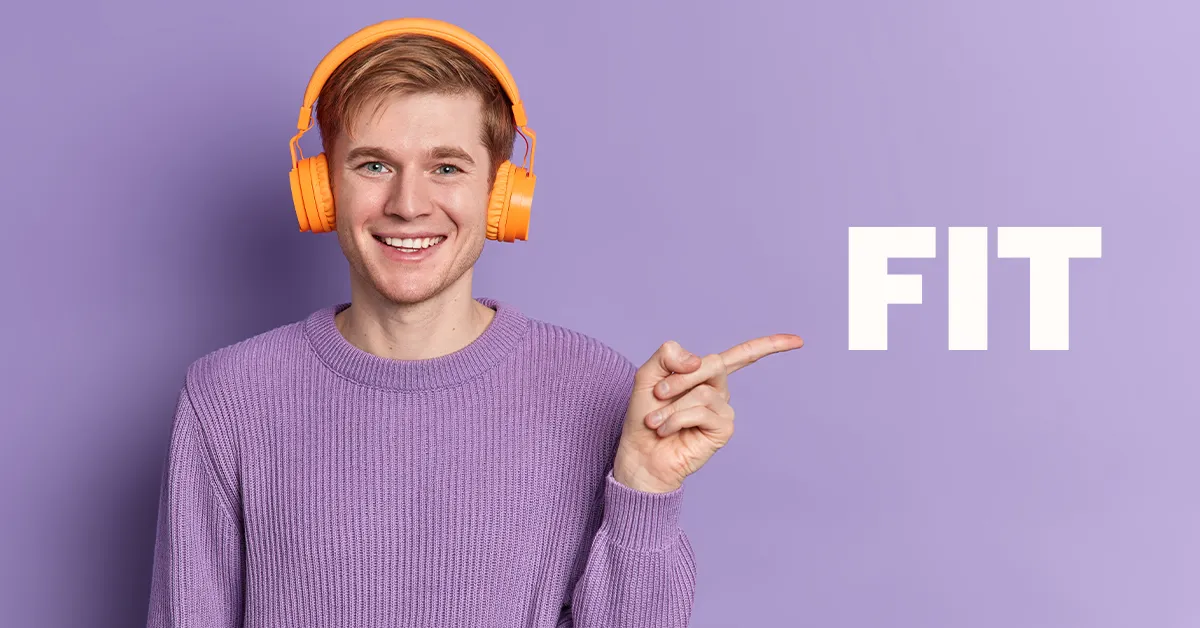When it comes to purchasing headphones, one of the most overlooked factors is the size of the headband. While most headphones are designed to fit a range of head sizes, those with smaller heads can often find it difficult to achieve a comfortable fit. Wearing headphones that are too large can result in discomfort, slippage, and even pain.
As a passionate audiophile, I understand the importance of finding the perfect pair of headphones that not only offer superior sound quality but also provide a comfortable and secure fit.
Are you tired of constantly adjusting your headphones because they just won’t stay in place? If you have a small head, finding headphones that fit well can be a challenge. Fortunately, there are several ways to make headphones fit small heads.
08 Ways How To Make Headphones Fit For Small Heads
- Use a Headband Cushion
- Adjusting the Headband Can Help
- Use In-Ear Headphones
- Use foam pads
- Replace Your Headband
- Wear a Hat or Beanie
- Use velcro strap
- Nylon Straps Can help
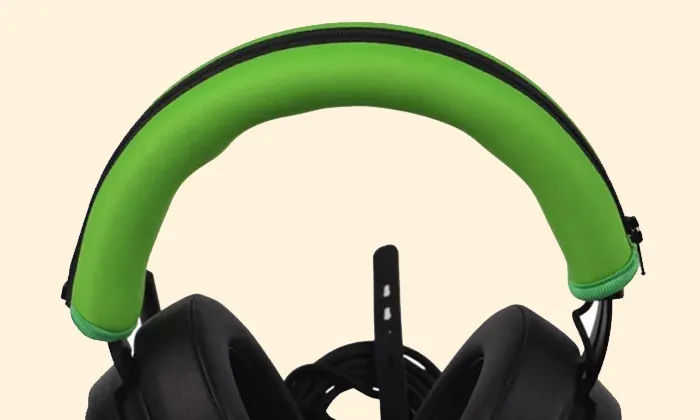
Use a Headband Cushion
A headband cushion is a soft padding that can be attached to the headband of your headphones to provide additional comfort and to help reduce the size of the headband. It’s a great option for those with smaller heads as it can help to make the Should Headphones be Tight?“>headphones fit more snugly.
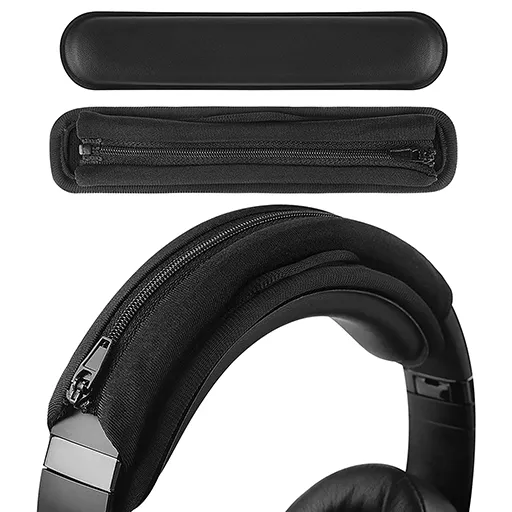
Adjusting the Headband Can Help
Most headphones come with an adjustable headband that can be adjusted to fit a range of head sizes. However, if the headphones are still too big, you can adjust the headband to its smallest setting and apply other tips to make them fit more snugly.
Use In-Ear Headphones
In-ear headphones (Earbuds) are a great alternative for those with small heads. They sit inside the ear canal, providing a secure fit and excellent sound quality.
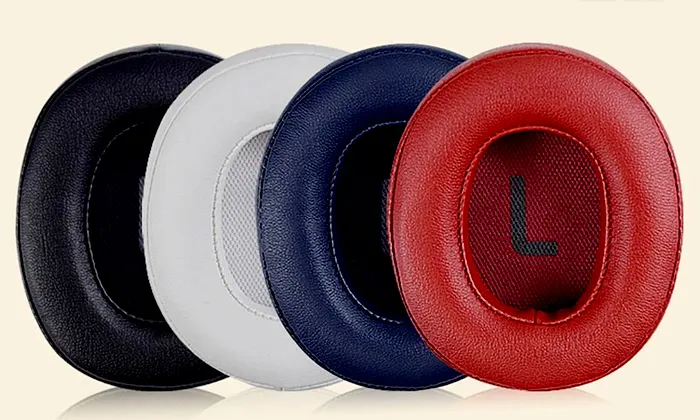
Use Foam Pads
Foam pads can be added to the ear cups of your headphones to provide additional cushioning and help reduce the size of the ear cups. Make sure to buy the Pads that are Compatible with your Headphones

Wear a Hat or Beanie
While wearing a hat or beanie may not be the most convenient solution for fitting headphones for small heads, it can still be a viable option for some individuals. If you have tried all other methods and are still having trouble finding headphones that fit snugly and comfortably, then wearing a hat or beanie can be a last resort.
However, I do agree that it may not be the most appropriate or practical solution for everyone, and it’s important to consider the type of activity you’ll be doing while wearing headphones with a hat or beanie.
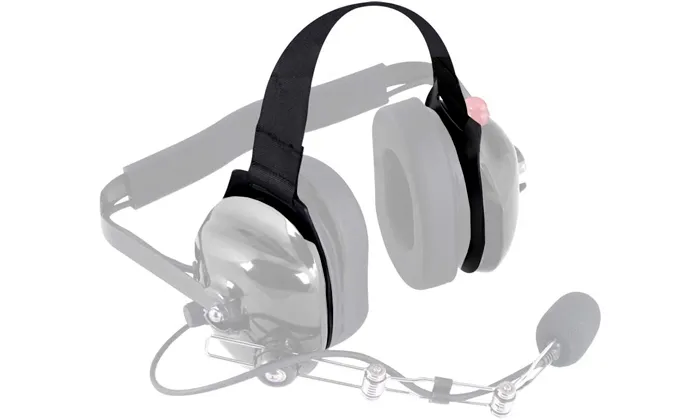
Use Velcro Strap
You can use a velcro strap to adjust the size of the headband. This will help to make the headphones fit more snugly and comfortably. But it is important to check the size of your headset before buying this Product.
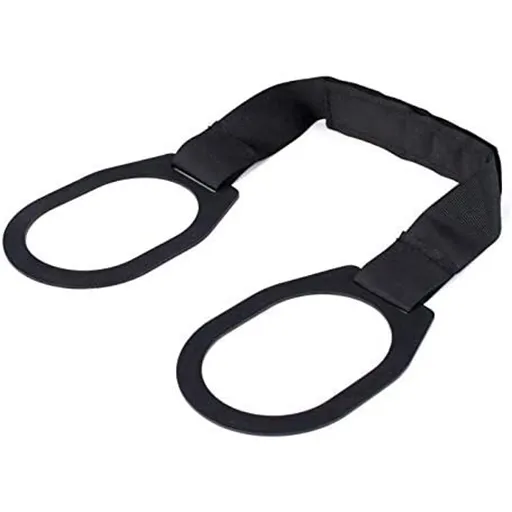
Replace Your Headband
Some headphones in the market come with a detachable headband, allowing you to replace it with a smaller one that can fit your head snugly. Just make sure to check if your headphones have a detachable headband before you purchase a replacement.

Nylon Straps Can Help
Nylon straps can be attached to the headband of your headphones to provide additional support and to help reduce the size of the headband. They’re a great option for those with smaller heads especially Kids who need extra support.
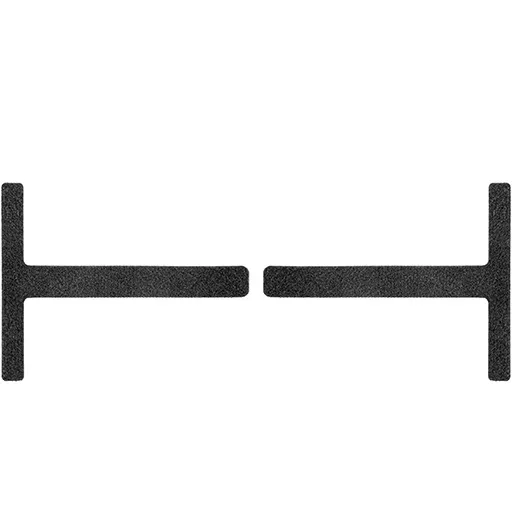
Why Is It Important For Headphones To Fit Well?
It is important for headphones to fit well for several reasons. Firstly, a proper fit can significantly enhance the audio quality of the headphones. When headphones fit properly, the sound is delivered directly into your ear canal, allowing you to hear every detail of the audio without any interference from outside noise. This can result in a more immersive listening experience, especially for those who enjoy listening to music or podcasts.
Secondly, a proper fit can also help to prevent discomfort or pain that may arise from ill-fitting headphones. Headphones that are too loose or tight can cause pressure on the ears or the top of the head, leading to discomfort or even headaches.
Finally, a proper fit can also help to improve the durability of your headphones. When headphones fit well, they are less likely to move around or fall off, which can help to prevent damage or wear and tear over time.
Reasons Why Headphones Be Loose
There are several reasons why headphones may be loose on your head. One reason could be the design of the headphones themselves. Some headphone models have a more rigid or inflexible headband that can be challenging to adjust to fit smaller heads. In contrast, other models may have a more flexible headband that can easily adjust to fit a range of head sizes.
Another reason why headphones can be loose is due to the shape and size of the user’s head. Not everyone has the same head shape, and some individuals may have a smaller head circumference, making it challenging to find headphones that fit properly.
The hairstyles can also affect the fit of headphones. For example, individuals with long hair may find that their hair interferes with the fit of the headphones, causing them to be loose.
Additionally, the shape of your head and ears can also affect how well headphones fit. If you have ears that protrude more than average or a head shape that is not perfectly circular, then it can be more difficult to find headphones that fit snugly.

Can Glasses Make Headphones Fit Small Heads?
Wearing glasses can make it more challenging to find headphones that fit well, especially for individuals with smaller head sizes. The temple arms of glasses can create pressure points behind the ears, making it uncomfortable to wear headphones that also exert pressure in the same area. This can lead to the headphones slipping off or feeling loose.
However, there are some headphones that are designed to accommodate glasses wearers. Some models have earcups that are designed to fit around the ear, rather than on top of it, which can help to alleviate pressure on the ears. Additionally, some headphones have earpads that are made of softer materials, such as memory foam or silicone, that can provide more cushioning and reduce discomfort caused by pressure points.
Are There Wireless Headphones For Small Heads?
Yes, there are wireless headphones that are designed specifically to fit smaller heads. In recent years, many headphone manufacturers have recognized the need for headphones that can accommodate a wider range of head sizes and shapes, including those with smaller head circumferences.
Wireless headphones that are designed for smaller heads typically feature a more flexible or adjustable headband that can be easily adjusted to fit smaller head sizes. Some models also have earcups that are smaller in size, which can help to provide a more secure and comfortable fit for individuals with smaller ears.
Do Bigger Ear Pads Make Headphones Fit Small Heads?
While it might seem counterintuitive, bigger ear pads may actually help make headphones fit better for individuals with smaller heads. This is because larger ear pads can provide more cushioning and support, which can help to create a tighter and more secure fit.
It is worth noting, however, that the size and shape of the ear pads is just one factor to consider when choosing headphones that will fit well on a smaller head. Other factors, such as the adjustability of the headband, the shape and size of the ear cups, and the overall design of the headphones, will also play a role in determining how well the headphones fit.
Can A Head Wrap Make Headphones Fit Small Heads?
Yes, a head wrap or a headband can be an effective way to make headphones fit better on smaller heads. This is because head wraps and headbands can add a layer of cushioning and support, which can help to create a tighter and more secure fit.
To use a head wrap or headband to make headphones fit better, simply wrap the band around your head and position it just above your ears, where the headphones rest. The band should be tight enough to keep the headphones in place, but not so tight that it causes discomfort or headaches.
Some headphones come with built-in headbands or bands that can be attached to the headphones to provide extra support and cushioning. If your headphones do not have this feature, you can use a variety of different types of headbands or wraps, including athletic headbands, sweatbands, or even a scarf or piece of fabric.
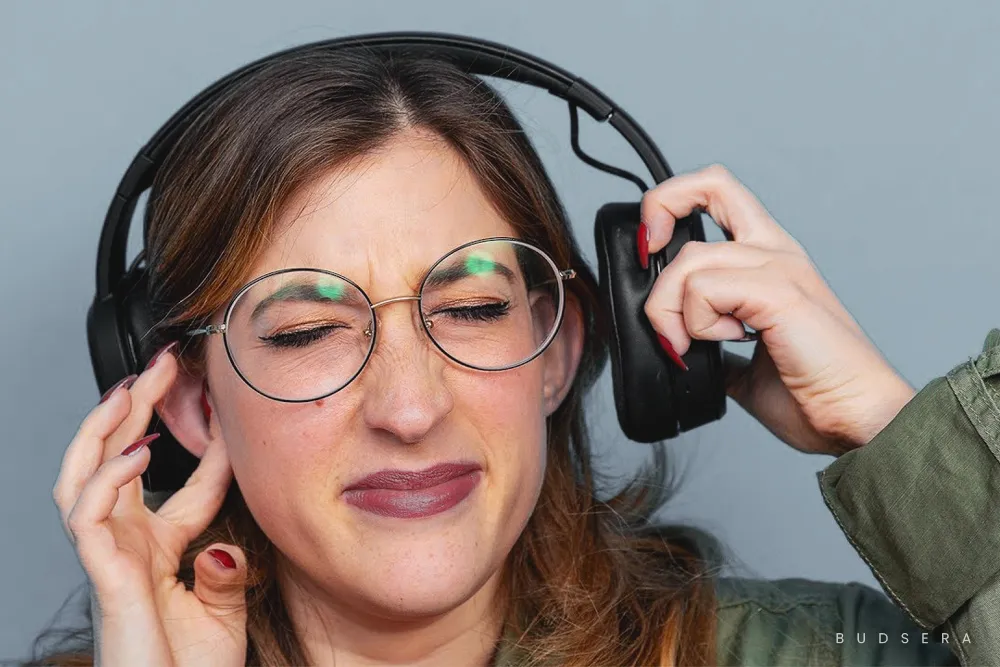
Why do my ears hurt with headphones?
There are several reasons why your ears may hurt when wearing headphones, especially if you wear them for extended periods of time.
Firstly, wearing headphones for a long time can create pressure and friction on the earlobes and surrounding areas, leading to discomfort and pain. This can be especially true for individuals with smaller ear sizes or sensitive skin.
Secondly, some headphones may have ear cups that are too small or too tight, leading to compression of the ear cartilage or pressing on sensitive areas of the ear. Over time, this can cause discomfort or pain, particularly if the headphones are worn for extended periods of time.
For more Details: Why do my ears hurt After Wearing Headphones For a Long Time?
Thirdly, headphones that are too loud can cause discomfort or pain in the ears. This is because high volume levels can cause damage to the delicate hair cells in the inner ear, leading to temporary or even permanent hearing loss.
Lastly, certain medical conditions, such as ear infections, wax buildup, or inflammation, can make the ears more sensitive and prone to pain or discomfort when wearing headphones.
Final Thoughts
In conclusion, finding the right fit for headphones is essential for comfortable and enjoyable listening. For those with smaller heads, it can be a challenge to find headphones that fit well and provide a secure and comfortable fit. However, by utilizing the tips and tricks discussed in this article, such as using headbands or wraps, adjusting the headband, or using foam pads, you can find a solution that works for you.
- Charging Bluetooth Headphones During Use: Is It Possible? - January 9, 2024
- Why Over-Ear Headphones Best for Hearing Health? (7 Reasons) - December 12, 2023
- Fixing the Bose Earbuds Not Charging in Case Problem: Solutions That Work - November 24, 2023
